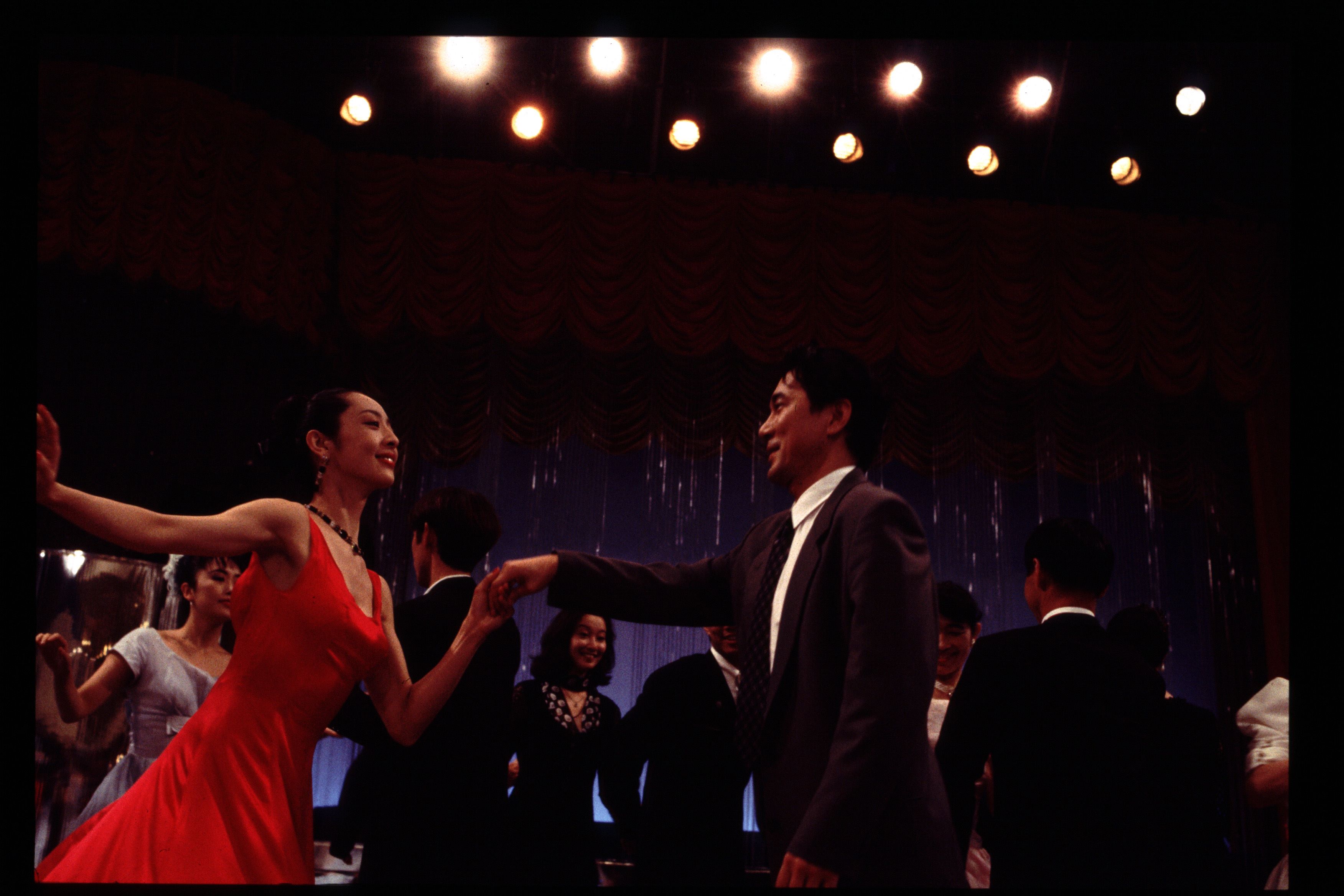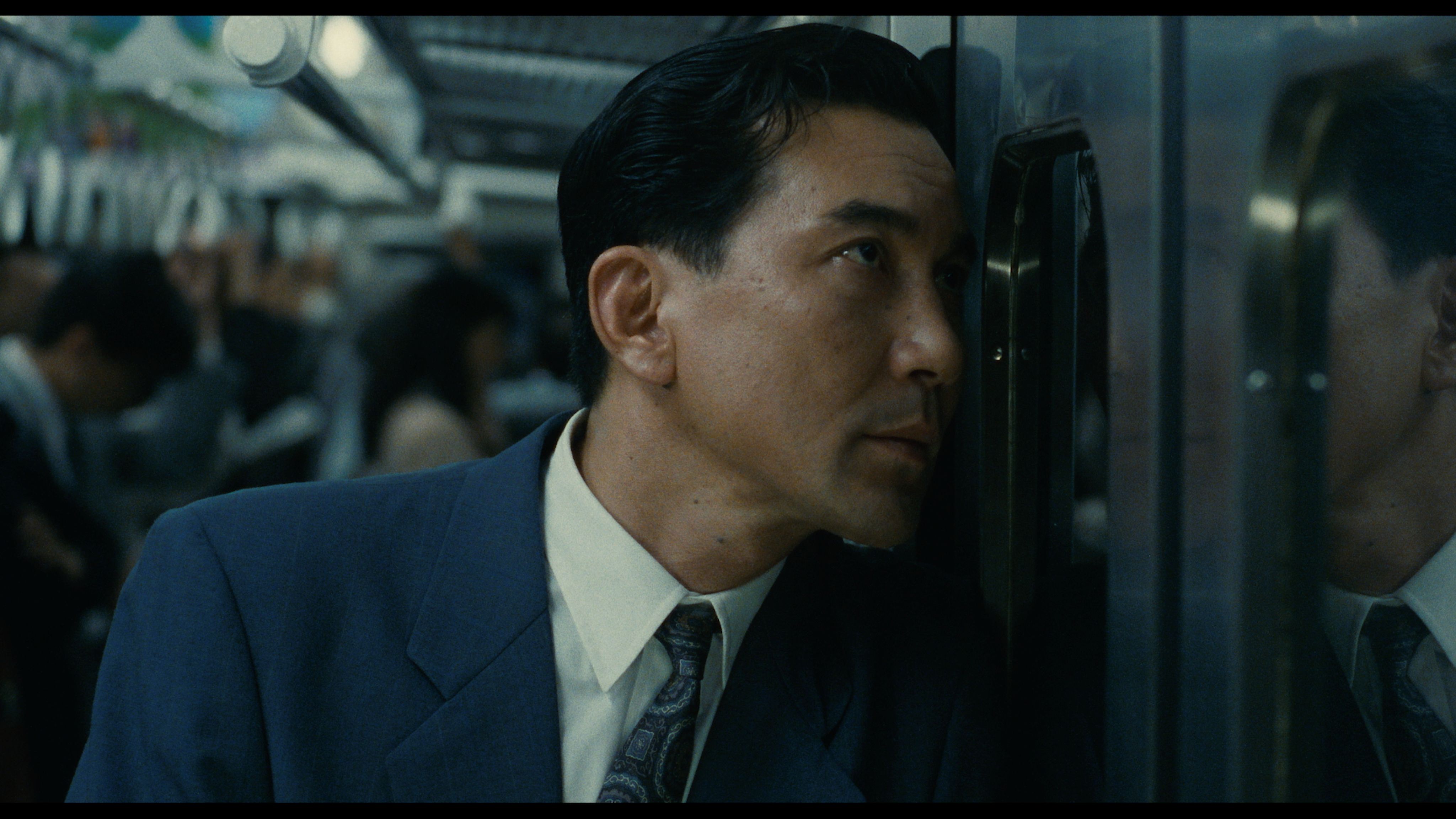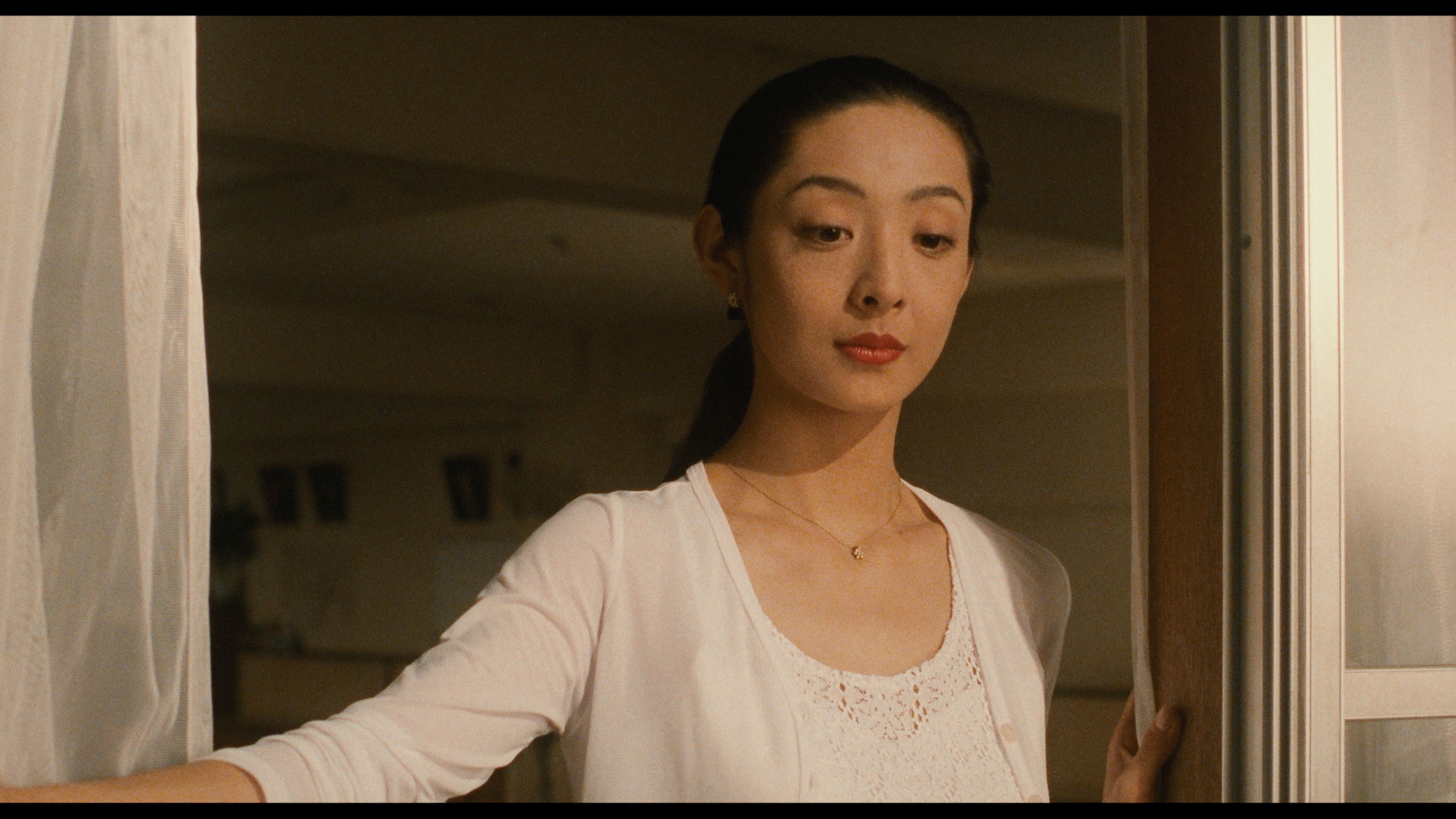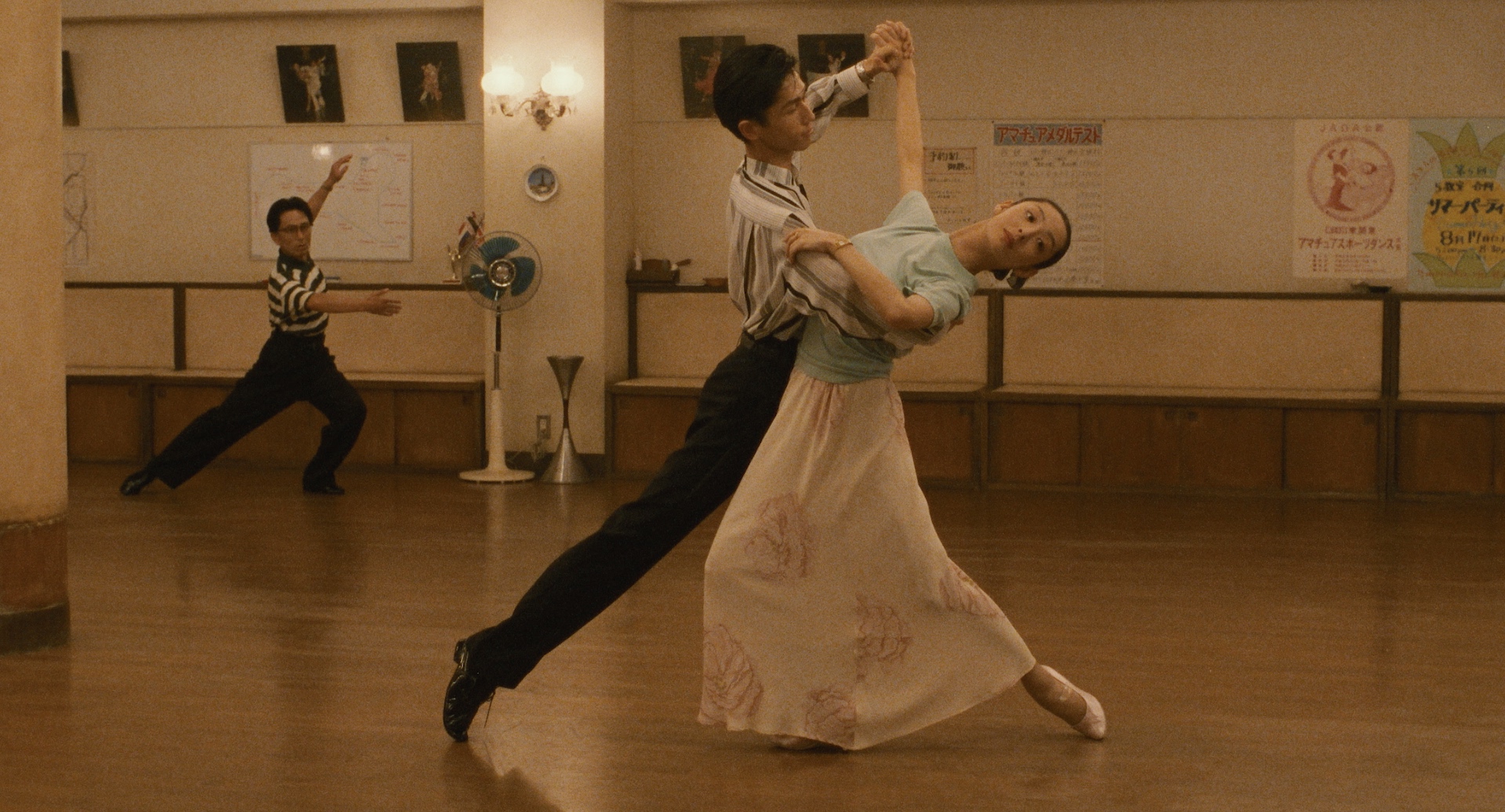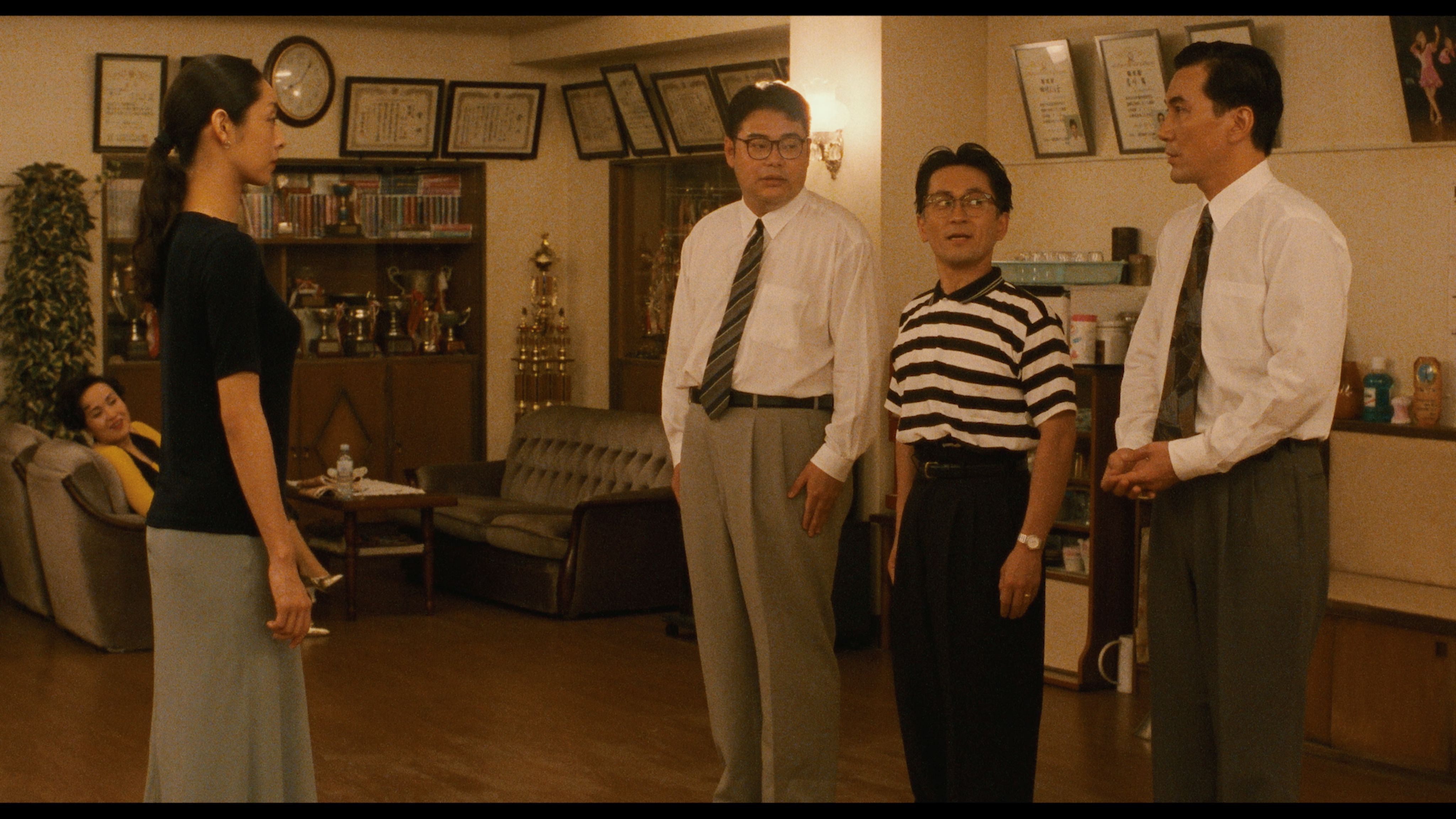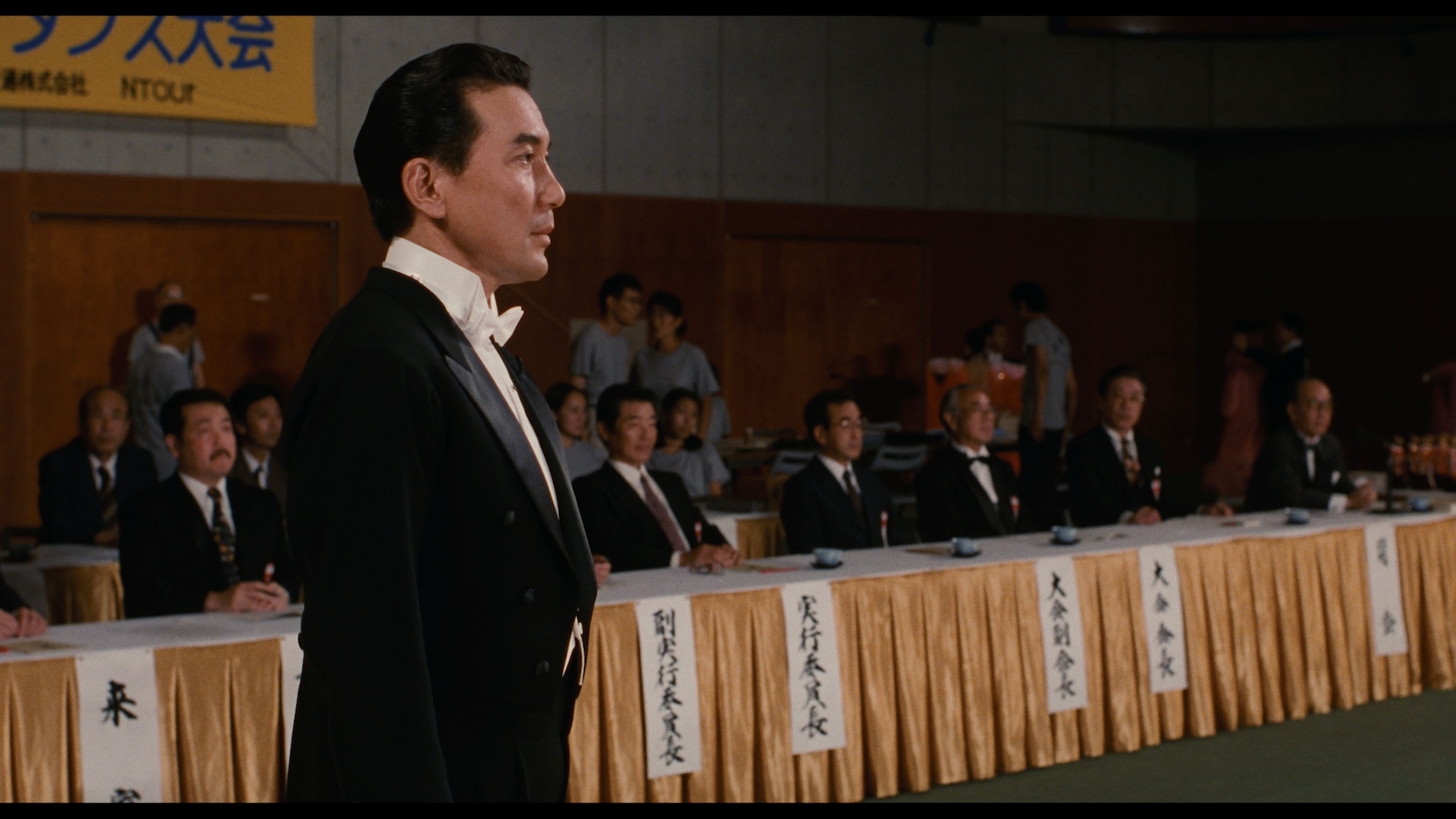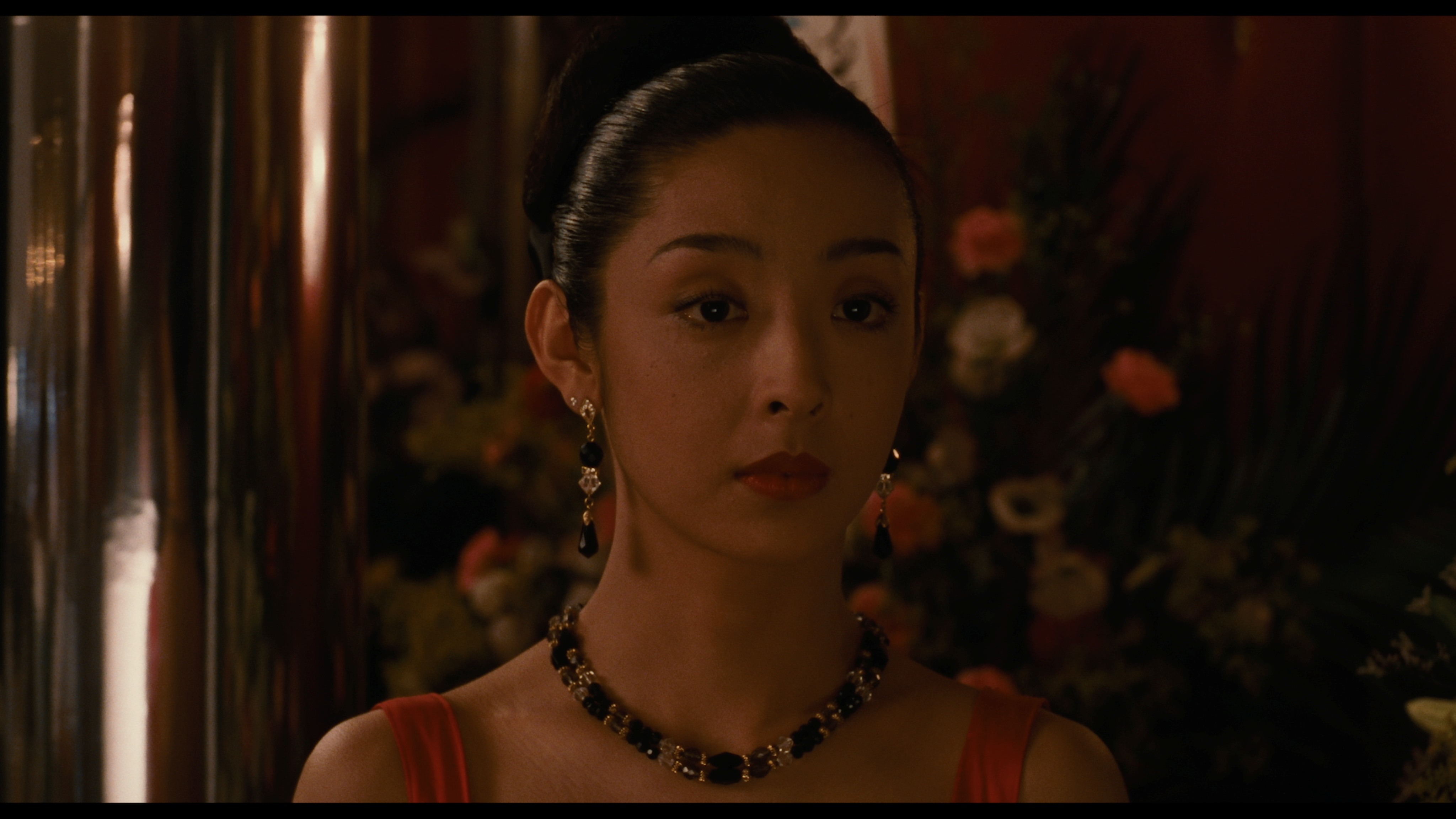SHALL WE DANCE? Interview: Masayuki Suo and Tamiyo Kusakari Discuss Their Unexpected Love Story
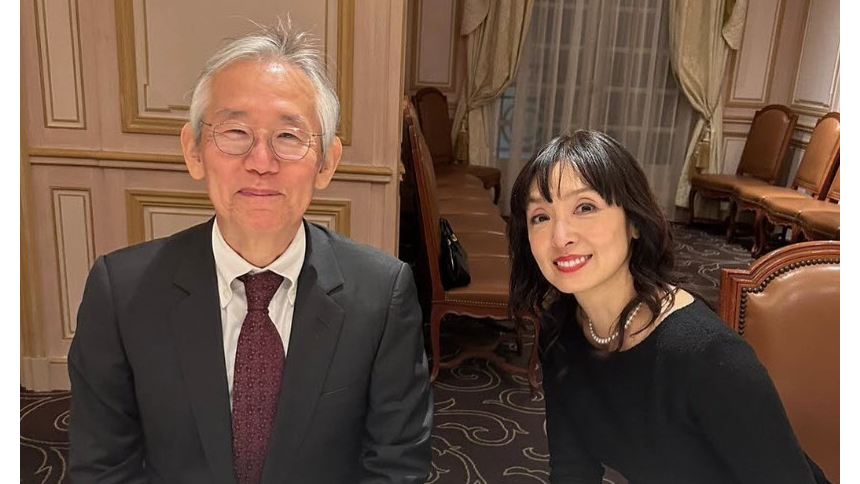
We all need a little romance in our lives. When feeling dragged down by routine and repetition, a change of scene or a novel activity can give us a new lease on life, or a fresh perspective - so too can the films that we watch.
You'd be hard-pressed to find a better pick than Masayuki Suo's 1996 classic Shall We Dance?. Shohei Sugiyama (Koji Yakusho, in a wonderfully warm performance) is a reserved and dutiful salaryman who arrives at work on time each morning and takes the same train back each evening.
On one fortuitous journey home, he finds his eyes drawn to an upstairs room with a floor to ceiling window. The light is on, and amid the glow he spies a young woman with a melancholy expression on her face. As if his feet are moving on their own, he heads up the steps to the building.
The woman is Mai Kishikawa (Tamiyo Kusakari), a renowned ballroom dancer, and the studio is used for dance lessons. On a whim, Sugiyama enrolls. At first, it's his passion for her that propels him, but he soon finds that dance itself excites and enthralls him. Keeping his new passion secret from his family and co-workers, an artistic affair begins.
Re-edited for international release by Miramax back in 1997, Shall We Dance? makes its triumphant return to the arthouses of North America this week, presented in its domestic incarnation for the first time and restored in beautiful 4K. Suo's original cut is paced immaculately and doesn't put a single foot wrong - it may well be a perfect 10.
Suo and lead actress Tamiyo Kusakari met on set, but they've kept dancing way beyond the film's credits. Sitting down for a Zoom conversation, we discuss the steps that brought them here.
This film is a love story of sorts, but - more than that - it's an ode to the romance in collaborating with each other creatively, and the chemistry that's involved in doing so. It strikes me as a poignant mirror of your own story together. How do you each feel about the film nearly 30 years on from release?
Masayuki Suo: I thought it was a uniquely Japanese story - I never imagined it would be seen by people overseas. And then, adding to that, it's now being given a fresh lease of life nearly thirty years later. It's an incredible surprise, and also a testament to the power of movies.
Tamiyo Kusakari: In my post-ballet career, I've become an actor again. Shall We Dance? was my first acting role.The fact that its reputation is growing and continuing almost thirty years on is an extraordinary honour. I have a great sense of gratitude for the experiences that this movie and my acting career have gifted me.
Masayuki Suo: The important thing to understand is that, after this movie, Kusakari-san continued her ballet career for 13 years. It was after that that she debuted as a full-time actress.
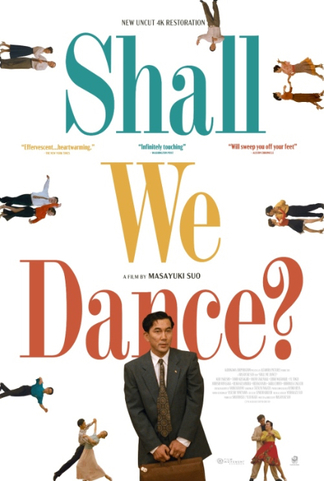 You'd satirised the archetypal domesticity of Ozu in your earlier film ABNORMAL Family, a pink film. Was SHALL WE DANCE? born out of a similar desire to subvert cultural norms and expectations?
You'd satirised the archetypal domesticity of Ozu in your earlier film ABNORMAL Family, a pink film. Was SHALL WE DANCE? born out of a similar desire to subvert cultural norms and expectations?
Masayuki Suo: It wasn't so much a desire from the start, but it was certainly informed by the Ozu movie Early Spring, in which a salaried worker on his way to work meets a young girl and starts an affair with her. There are themes from that movie that certainly carry over into Shall We Dance?. Many character names from that movie carry over into Shall We Dance? as well.
What is your most treasured memory from making the film?
Masayuki Suo: [laughs] Well, I have to say, in my case, the main thing is that I married the lead actress and my life changed immeasurably.
Tamiyo Kusakari: It's certainly the same for me of course. But also, the fact that a single movie can move people's hearts to this degree. To be at the forefront of that and to experience it directly is an extraordinary thing.
What do you hope that fresh international audiences are gifted by this film when it's released uncut in North America for the first time this week?
Masayuki Suo: Well, I am so far removed from this movie at this point - it's hard to feel a sense of what I want the movie to convey or how I want people to feel. Instead, I'm just so curious as to how a modern international audience will take this film - what their responses will be and what emotion they will engender in me.
You mentioned feeling this to be a uniquely Japanese story, and I'm curious as to how you felt when the film was first released internationally. It was of course re-edited, but it was also released quite promptly after the domestic release.
Masayuki Suo: I understood it to be a very Japanese work, but I came to realise that it had a universal appeal - which was a great surprise to me. But specifically what was very interesting was that I had made the film as a way of encouraging Japanese people to promote self-expression, and not to fear self-expression. From the minute it started playing in the West, there was a great focus on Sugiyama's 'midlife crisis', a concept that hadn't taken hold in Japan - it hadn't occurred to me. It was fascinating to realize that there was a whole interest in this film from an entirely different viewpoint than the one I had.
Romance and daydreaming are feelings that are well-suited to cinema. We peer through these screen windows on people and their lives, much like Sugiyama peers through his commuter train window to see Mai in the window up above him. What are your feelings on how this kind of curiosity translates to film? You've captured it really beautifully here.
Tamiyo Kusakari: I don't really think of this as a 'love story'. Sugiyama approaches Mai - as a professional dancer, she's not really interested in anyone who's not a part of the dance world. Sure enough, their relationship does develop - she understands, and recognises his growing interest in dance - she learns to respect him, and they reach that level.
There were many parallels to my own life, in that I too was not interested in anyone outside of the world of dance. However, during the course of this movie, I ended up meeting and then marrying a film director, which I could never have imagined. So there are interesting parallels in that, for sure.
Masayuki Suo: I was always very aware of romance as a film genre, but it was never a genre that I wished to pursue myself. Shall We Dance? was about the love of dance itself. Looking back, Sumo Do, Sumo Don't was about learning to love sumo wrestling. Fancy Dance, you have somebody becoming involved with the depths of zen. I realised that my movies are about people falling in love with a world they didn't know, and falling in love with the exploration of that world. That's where the throughline is.
With thanks to Kennedy Taylor for translating. The 4K restoration of the original cut of Shall We Dance? opens at Film Forum in New York City on May 30th, before expanding to further locations, via Film Movement. Visit their official site for more information.










